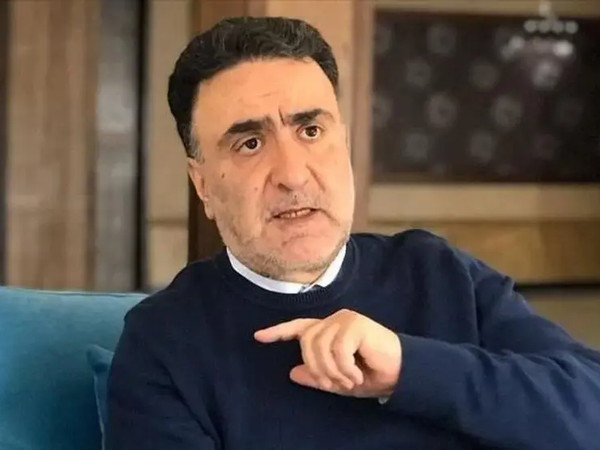Imprisoned critic of Iran's Islamic government, Mostafa Tajzadeh, has accused Supreme Leader Ali Khamenei of fueling poverty and corruption in a letter written from Tehran's Evin Prison.
“After 35 years of Khamenei's rule, Iranians enjoy neither development nor prosperity; they have neither freedom nor justice,” he said in his letter shared with several media outlets.
Frequently described as a reformist, the activist’s letter follows the issuance of an additional six-year prison sentence by Tehran's Revolutionary Court.
Judge Abolqasem Salavati handed down the sentence on charges of “assembly and collusion against national security” and “propaganda against the system.” Salvati has been sanctioned by the US, for overseeing “the Iranian regime’s miscarriage of justice in show trials.”
This marks the third conviction issued against Tajzadeh since 2009.
Fakhrossadat Mohtashamipour, his wife and fellow activist, confirmed the news through a Telegram channel linked to the political activist.
She criticized the judiciary’s alignment with security forces, particularly the Islamic Revolutionary Guards’ Intelligence Organization, which she claimed orchestrated the charges.
In his letter, Tajzadeh argued the country’s economic struggles and international isolation stem from Khamenei's anti-American policies and his aggressive regional strategy, which is centered on the so-called Resistance Front.
The letter painted a grim picture of Iran’s trajectory, with the activist saying that systemic failures have eroded national sovereignty and public trust.
He argued that Khamenei’s leadership style—marked by suppression of dissent and reliance on a loyalist minority—has created a governance crisis.
“The Leader has surrounded himself with individuals who refrain from telling him the truth—either out of fear or opportunism,” Tajzadeh added.
He emphasized that the issues facing Iran are deeply entrenched in Khamenei’s policies, warning that no government could succeed under the current approach.
Tajzadeh also called for the removal of the Supreme Leader’s role from Iran’s Constitution, describing it as a harmful innovation deviating from Shia traditions.
He framed this change as essential for enabling democratic governance and resolving Iran’s enduring challenges.
“The concept of the Supreme Leader must be removed to enable democratic politics,” he wrote, saying that the current governance model has failed to resonate even within the Muslim world.
Tajzadeh’s comments reflect growing dissatisfaction among Iranian civil society, marked by years of protests and dissent.
